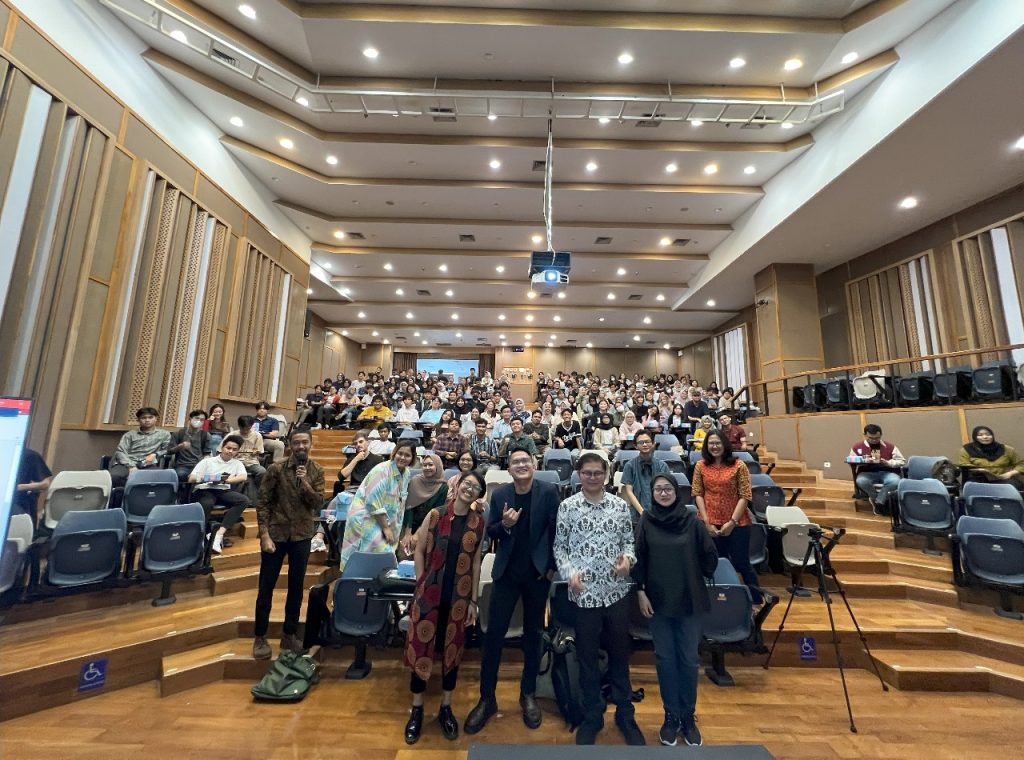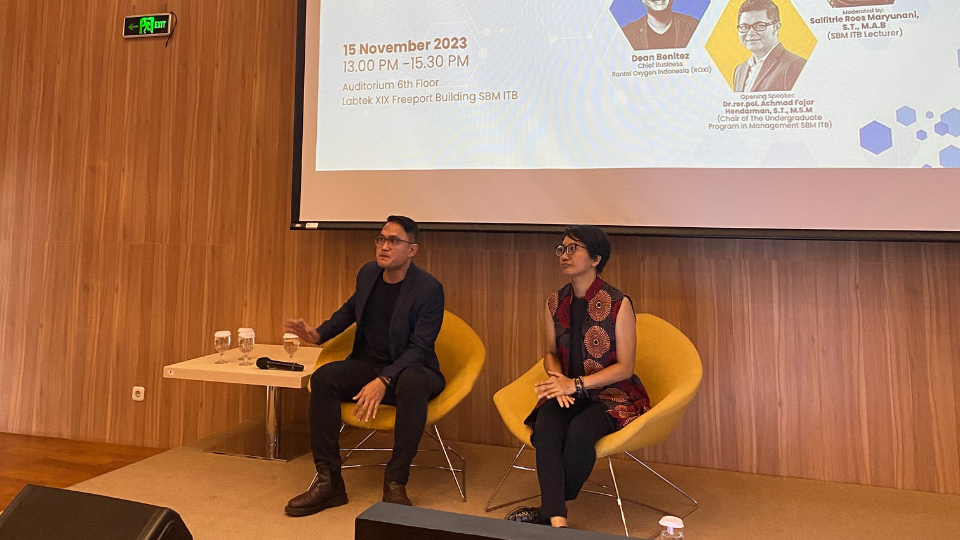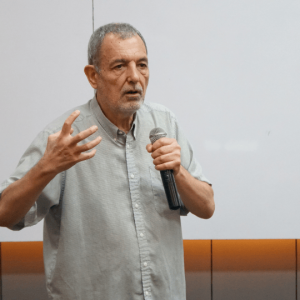It is important for business people to continue to raise awareness of waste management and clean energy. Applying these principles ensures environmental management and fosters sustainable practices for long-term business success.
The topics of waste management, clean energy, and proactive steps to combat climate change were the main discussions in a seminar entitled “Waste Management & Clean Energy” held by the Bachelor of Management Program at SBM ITB in collaboration with the Seed Center at the 6th Floor Auditorium, Freeport Building, Bandung (15/11). This seminar presented speakers from PT Rantai Oxygen Indonesia (ROXI) and Garda Pangan.
In his speech, Dr. rer. pol. Fajar Hendarman, S.T., M.S.M, Chair of the Bachelor of Management Program, emphasized the importance of developing a global mindset, sustainability, and ethical practices in managing waste and promoting clean energy in business operations.
Meanwhile, Chief Business Officer of PT Rantai Oxygen Indonesia (ROXI, Dean Benitez, explained the facts about climate change and various strategies that business organizations can choose to proactively prevent the impacts of climate change and contribute to future sustainability plans.
“In this life, we are given two homes. The first is our physical body, and the second is our planet. To ensure a better future for humanity, we must protect our best defense against climate change: trees. “Business organizations that are more environmentally conscious are crucial in preserving our earth,” explained Dean.
The Founder & CEO of Garda Pangan, Eva Bachtiar, highlighted that Indonesia ranks second in food waste production among G20 countries. While this is a significant issue, it has not received adequate attention.
“If we talk about food loss, there are three impacts that we need to pay attention to, namely economic, environmental, and nutritional or social impacts,” explained Eva.
As a social enterprise with two primary goals—eradicating food loss and reducing food waste—Garda Pangan has undertaken various initiatives to address this crisis’s economic, environmental, and social impacts. Garda Pangan’s comprehensive approach has yielded substantial results, from implementing a food recovery hierarchy to engaging in policy advocacy. Notably, the organization has successfully saved over 500,000 portions of food, preventing 130 tons of potential food loss and waste. These efforts have benefitted more than 27,000 individuals in underprivileged communities. Furthermore, 120 tons of food waste have been repurposed into animal feed, significantly reducing greenhouse gas emissions.
Speakers and seminar attendees called for collaborative efforts between business actors, policymakers, and society to encourage sustainable change, combat climate change, and overcome food insecurity.







